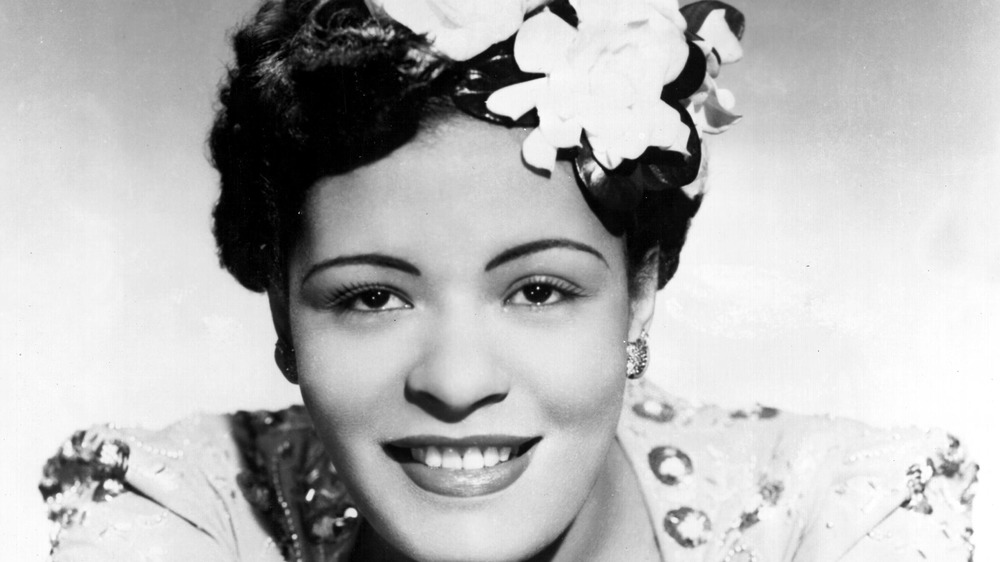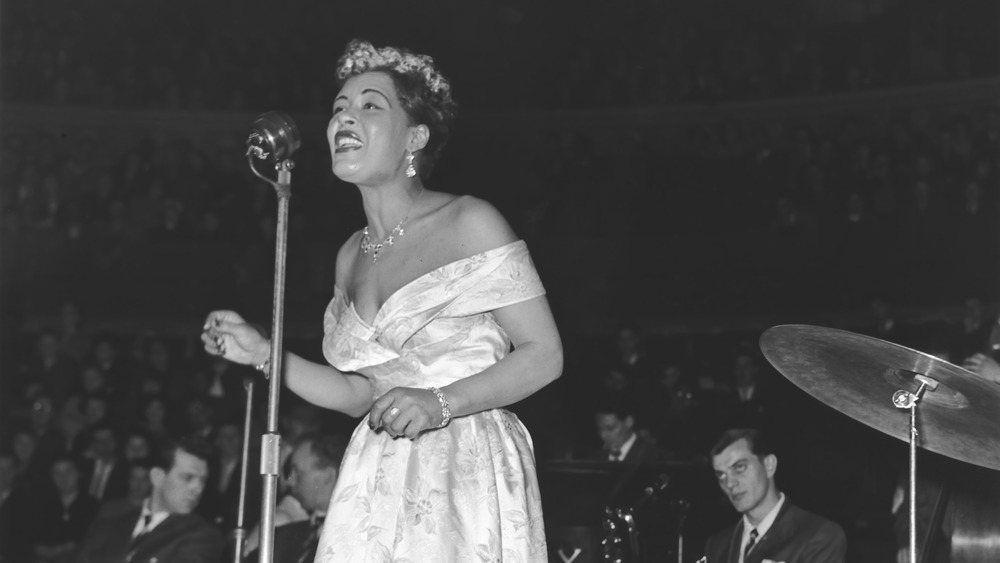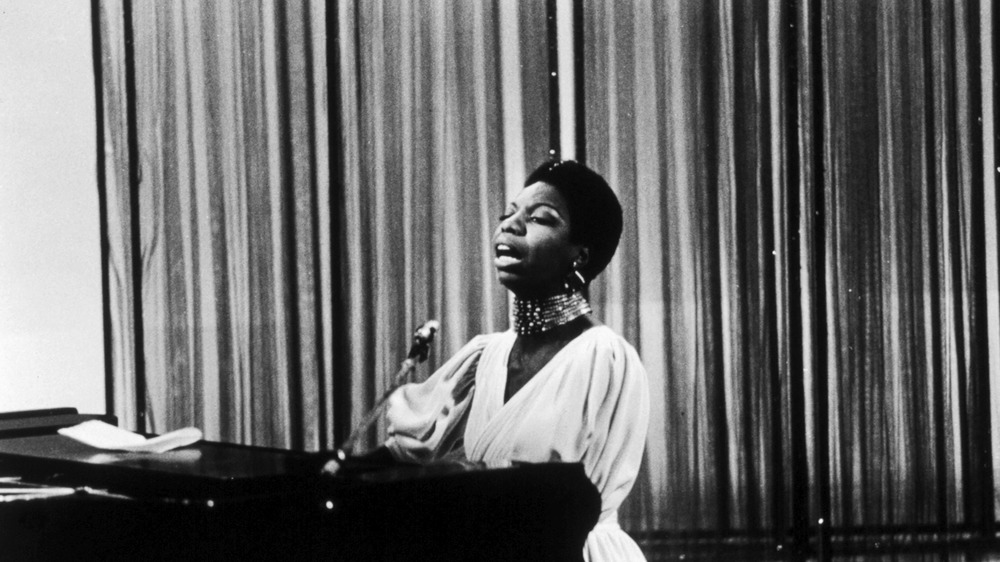The Real Meaning Behind Billie Holiday's Strange Fruit
"Strange Fruit" is the song that made Billie Holiday into an enduring cultural icon, and it still holds a monumental spot in the history of civil rights in America.
Holiday, who is portrayed by Andra Day in the film The United States Vs. Billie Holiday, sang the most famous version of the song, but it's since been covered by dozens of different musicians. In 1999, it was declared "the song of the century" by Time magazine for its tragic timelessness. The gut-wrenching lyrics of "Strange Fruit" are a crucial part of why it has endured: it's a song about lynching that never directly mentions its horrific subject matter.
Per the BBC, the song was written by Jewish schoolteacher Abel Meeropol, reportedly after he saw a photograph of a lynching in 1937. Two young African-American men, Thomas Shipp and Abram Smith, had been dragged out of their jail cells and murdered by a white mob in Marion, Indiana in 1930. According to NPR, it was local photographer Lawrence Beitler who took the picture that haunted Meeropol, which showed the two men's bodies hanging from a tree.
"I wrote Strange Fruit because I hate lynching, and I hate injustice, and I hate the people who perpetuate it," Meeropol said in 1971. His lyrics address the topics through a chilling metaphor: "Southern trees bear a strange fruit / Blood on the leaves and blood at the root," the song begins, per Genius. "Black bodies swinging in the southern breeze / Strange fruit hanging from the poplar trees."
Billie Holiday first performed it at Cafe Society in 1939
According to Dorian Lynskey, who wrote about the song in his book 33 Revolutions Per Minute, the original poem's title had been "Bitter Fruit" before Abel Meeropol, who wrote it under the pen name Lewis Allen, set it to music and gave it to the then-23-year old singer Billie Holiday.
Meeropol was there the night she debuted it at the integrated club Cafe Society. "She gave a startling, most dramatic and effective interpretation which could jolt an audience out of its complacency anywhere," he marveled. "This was exactly what I wanted the song to do and why I wrote it."
The club's owner, Barney Josephson, always had her perform it at the end of the night in a single spotlight. "People had to remember Strange Fruit, get their insides burned by it," he recounted. Holiday's vocal performance brought out the sarcasm of the lyrics, which contrast "the gallant south" and its "scent of magnolias, sweet and fresh" with the "sudden smell of burning flesh."
"Strange Fruit" has been covered by dozens of different musicians
When it was released as a single, the song's political power was undeniable: as Dorian Lynskey wrote, congressmen soon began receiving copies in the mail from anti-lynching campaigners. In 1939, Samuel Grafton of the New York Post observed (via Billie Holiday) that "if the anger of the exploited ever mounts high enough in the South, it now has its Marseillaise," comparing "Strange Fruit" to the anthem of the French Revolution.
The song also proved controversial when Billie Holiday tried to tour: some club promoters even ordered her to leave it off her setlist, according to the BBC. Holiday fought them by adding a clause to her contract, which meant they had to grant her the option to sing it.
Nina Simone later famously commented that it was the "ugliest" song she had ever heard, according to Lynskey, clarifying: "Ugly in the sense that it is violent and tears at the guts of what white people have done to my people in this country." Simone covered "Strange Fruit" in 1965, and her version was then sampled in the 2013 Kanye West song "Blood On The Leaves."
The song has resonated for generations thanks to different artists like Simone and West, who have brought its anti-racist message to new eras of music. Andra Day recently performed it on Jimmy Fallon, proving that a message, written by a Jewish teacher, about the injustice that Black people face in America is just as relevant and heartbreaking as when it was written in 1937.



